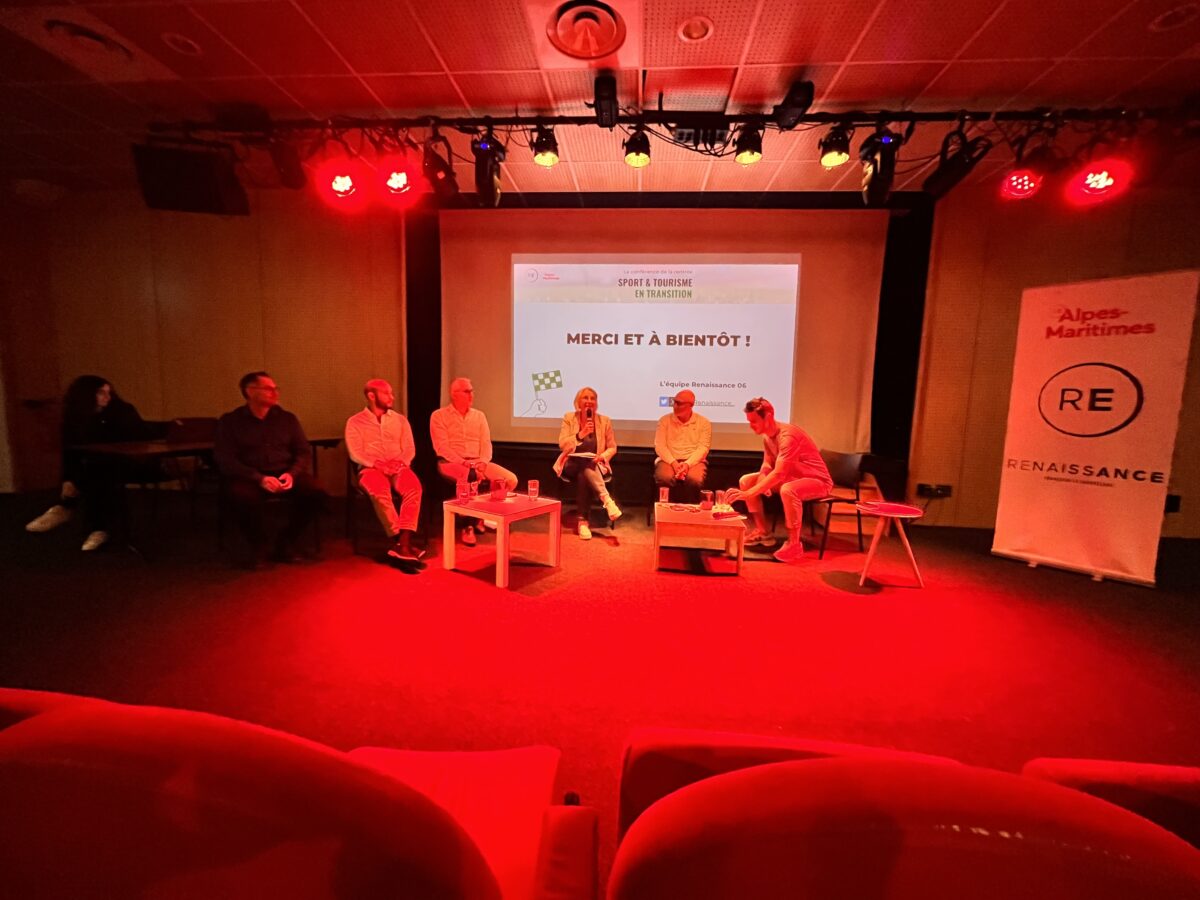For its back-to-school conference, the Renaissance party of Alpes-Maritimes focused on the theme of sports and tourism.
While the President of the Republic, Emmanuel Macron, announced his major environmental measures on September 25 at the end of the second Ecological Planning Council at the Élysée, Renaissance 06 also decided to mark their return. It was the first time the party organized a round-table discussion like this one.
A hundred people gathered in the amphitheater of the Maison des Associations on Place Garibaldi. The event featured an hour of speeches by five speakers presented as experts in the sports industry or the Maralpine territory (Dominique Gatto, Baptiste Lauro-Lillo, Elodie Bondi, Gérard Rougier, and Georges Botella).
The audience was able to engage with the speakers on environmental issues related to the territory. The speakers represented different sectors, including clubs, federations, the territory, and businesses.
To represent the clubs, Baptiste Lauro-Lillo, the Corporate Social Responsibility (CSR) coordinator at the Toulon Rugby Club, was present. He highlighted the actions taken by the club, such as revamping their bar menu to showcase local products and promote organic options, even in the stadium.
The Var club has even made all public transportation free on match days. As the last match of the Rugby World Cup took place on Sunday, rugby was still at the heart of the discussions.
Dominique Gatto, the operations director of the Mouratoglou Tennis Academy, discussed the work on measuring stadium consumption in France. He noted that the Allianz Riviera is among the top ten most eco-friendly stadiums in the world. He also discussed the photovoltaic park that powers the Groupama Stadium in Lyon, demonstrating that stadiums can also be committed to reducing our environmental impact.
Water at the Heart of the Debates
Next, the Deputy National Technical Director of the French Golf Federation, Gérard Rougier, spoke about golf’s commitment. The French Golf Federation claims to have started its first program twenty years ago.
This program aims to measure the water used by golf courses and reuse it to meet environmental needs. He then addressed the nature of their new project dedicated to the issue of phytosanitary products. These products will be banned in 2025, and as a result, all sports that require lawn maintenance will need to find an alternative.
Finally, Guilaine Debras, former mayor of Biot, emphasized the importance of preserving the territory in the face of significant tourist influx in the region. For her, it is not about “banning for the sake of banning.”
However, she believes that all natural areas should be highlighted. These account for 60% of the Maralpine territory, including Natura 2000 sites. Therefore, she advocates for better promotion of the hinterland, which she claims is too often overlooked by tourists.


